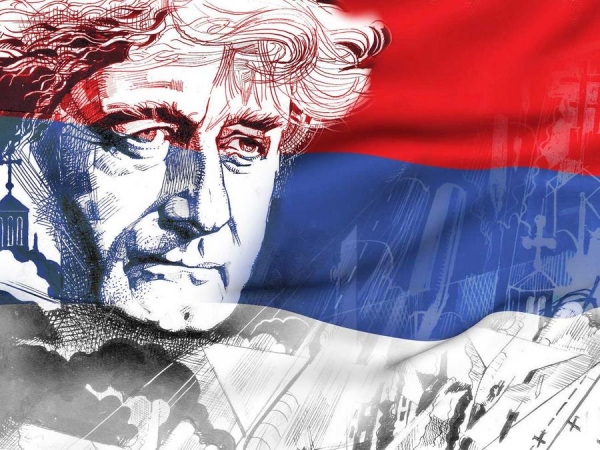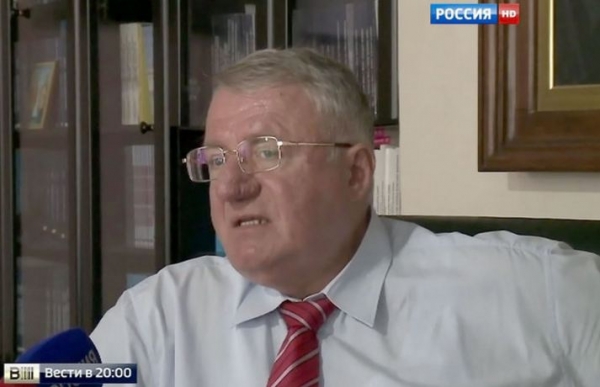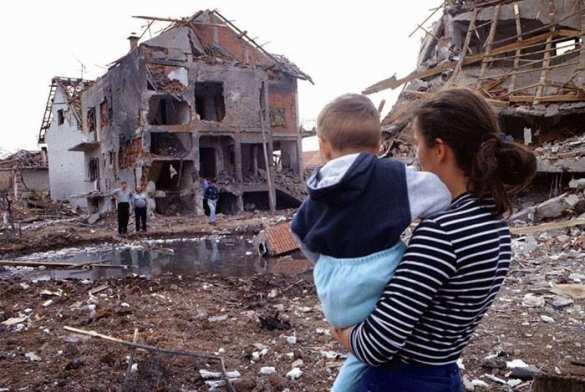© Provided by Deutsche Welle Radovan Karadzic in the Hague Trybunalski hall, the poet, the politician, and for many residents of Bosnia and Herzegovina, war criminal and person of interest to psychiatry. On 24 March, the international Tribunal for the former Yugoslavia in the Hague will deliver its verdict in the trial of ex-Bosnian Serb leader Radovan Karadzic. He is accused of genocide, war crimes and crimes against humanity. In particular, Karadzic, which was at that time the political leader of Bosnian Serbs must answer before justice for the massacre of Bosnian Muslims in Srebrenica in 1995, which killed around 8,000 men and boys who practice Islam.
The remaining counts relate to the expulsion and extermination of the population, torture, and violations of international humanitarian law during the siege of Sarajevo. The involvement of Karadzic to the last point, no doubt, in an interview with DW said Professor of the Department of international relations and intercultural relations, University of Bucharest, expert on the Balkans, Franz-Lothar Altman (Franz-Lothar Altmann). “Then was made the shelling and bombing of the civilian population. This is clearly a war crime,” he said.
“The morale of the Serbs”
Radovan Karadzic was born in 1945 in the Montenegrin village, but with 15 years lived in the then cosmopolitan city of Sarajevo in Bosnia and Herzegovina was part of Yugoslavia. Father Karadzic during the Second world war he fought on the side of the Chetniks – the Serbian nationalist extremists with views advocating the great Serbia, which were destroyed by the Yugoslav partisans (and later the so-called nationalist movement, participating in armed conflicts in Yugoslavia in the mid 90-ies. – Ed.).
After high school, Karadzic studied psychiatry at the medical faculty in Sarajevo University and a year internship at Columbia University in new York. Upon his return he opened a private psychiatric practice in the town of pale, under Sarajevo, and got a job full-time psychologist on the football team.
In addition, Karadzic wrote poems and was a member of the Union of writers. His nationalist views were evident in his verses: he talked about “fighting spirit of the Serbs”, said Franz-Lothar Altmann. But after meeting with the writer and theoretician of the Serbian national movement by Dobrica Ćosić he was even more strengthened in their beliefs.
The nationalist party
However, on the Outlook Karadzic has affected not only COSIC: he met with former President of Serbia Slobodan Milosevic (against him in the Hague Tribunal has also initiated a process, however, was never finished owing to the death of the defendant in 2006. – Ed.) and with his future political ally by momčilo Krajišnik, who was subsequently sentenced by the Hague Tribunal to 20 years in prison for war crimes. With the recent Karadzic met in the detention center, where he stayed for 11 months on suspicion of misappropriation of funds from the state Treasury. However, in the end, Karadzic was acquitted.
In 1990, Radovan Karadzic was a founding member and head of the Serbian democratic party, came to power in Bosnia and Herzegovina after the start of democratic transformations in the former Yugoslavia.
The enemy in the face of Muslims
Radovan Karadzic was not the only guy to have the ability to translate their nationalist views in life. In this period, the country dominated nationalism: the Slovenes, Croats and other people have felt the oppression of Belgrade and predominantly Serbian leadership wanted to secede from Yugoslavia. Is no exception and Bosnia and Herzegovina, but Serbian authorities in whatever was wanted to prevent it. Karadzic himself as a policy has created the image of enemy in face of the Muslims. Apparently, this was “a transfer of an earlier image of the enemy in the face of the Ottoman Turks,” explains Altman. “Bosnian Muslims were for him (Karadzic. – Ed.) a sort of descendants of the Ottomans, which has long struggled Serbia and the Serbian people”.
1 March 1992 held a referendum on which Bosniaks and Croats voted for independence of Bosnia and Herzegovina. The Serbs boycotted the vote. A month later the war began. Areas with predominantly Serbian population announced the creation of Republika Srpska, where the first President was Radovan Karadzic. In the following years on the territory of the former Yugoslavia killed about 100,000 people, were committed mass rape of Muslim women, and hundreds of thousands of people of different nationalities were expelled from their homes.
And there was genocide in Srebrenica, which killed about 8,000 were present were Bosnian Muslims. In the Hague is still ongoing judicial process in the case of former commander of the army of Bosnian Serbs Ratko Mladic, who is accused of ocenenie violence. In July 1995 Bosnian Serbs under his command captured the Srebrenica enclave, which was declared a security zone by the UN and served as a shelter for several thousand Bosnian refugees. According to a UN report, there were peacekeepers without resistance handed over soldiers control over all observation stations.
Life under an assumed name
After the war, Mladic and Karadzic spent years in hiding in Serbia. He lived with forged documents with the name Dragan Dabic and radically changed his appearance. Besides, he clearly had a lot of helpers, that warned him of danger, when the campaign started for his capture, explains Franz-Lothar Altman Altman. In 2008, the Serbian authorities that there was a lot of pressure from the EU, finally managed to arrest Karadzic in Belgrade. After almost three years in a village in Northern Serbia and was arrested Ratko Mladic.
As stressed by the chief Prosecutor in the Karadzic Serge Brammertz, the expected verdict of the Hague Tribunal will be historical: finally installed, did a former politician himself ordered the murder of Muslims in Srebrenica.
Author: Marina Martinovic, Alexandra Elkin







